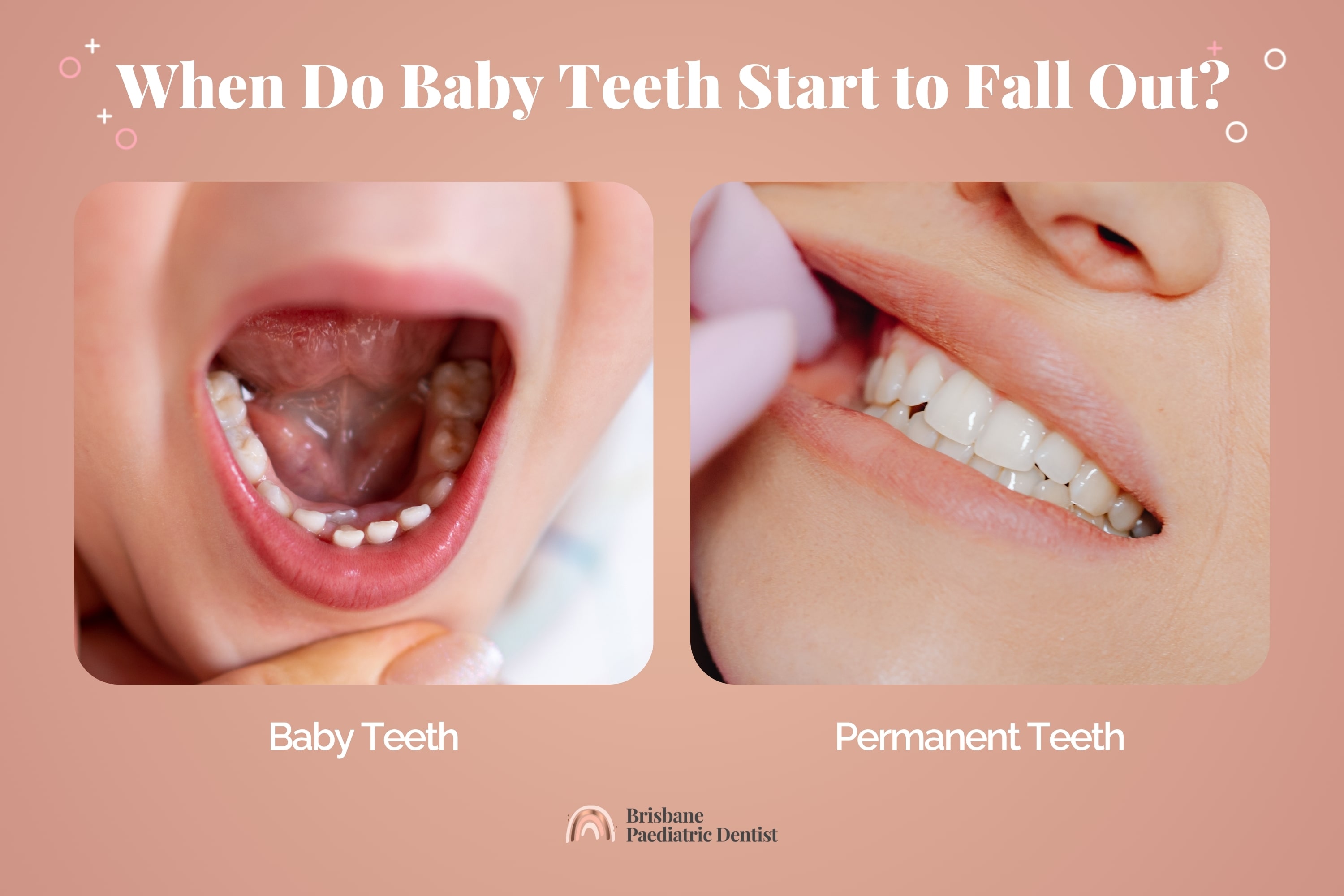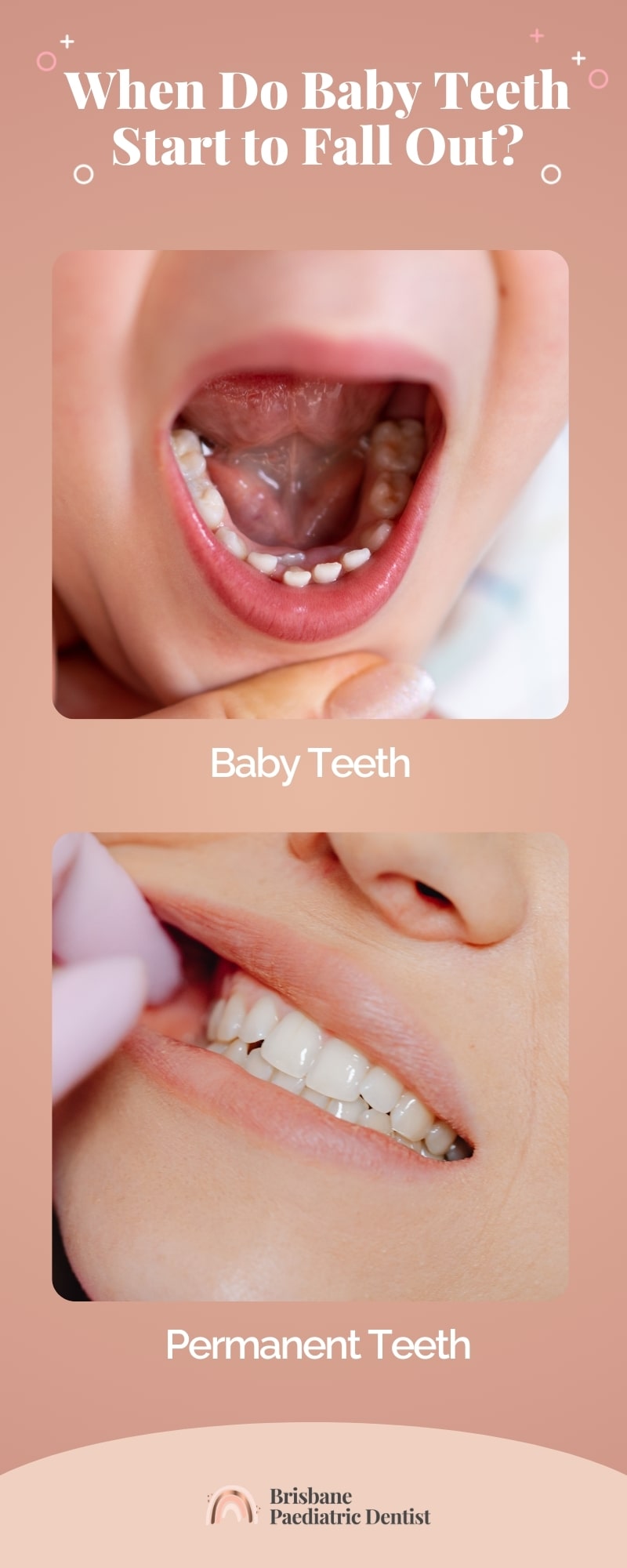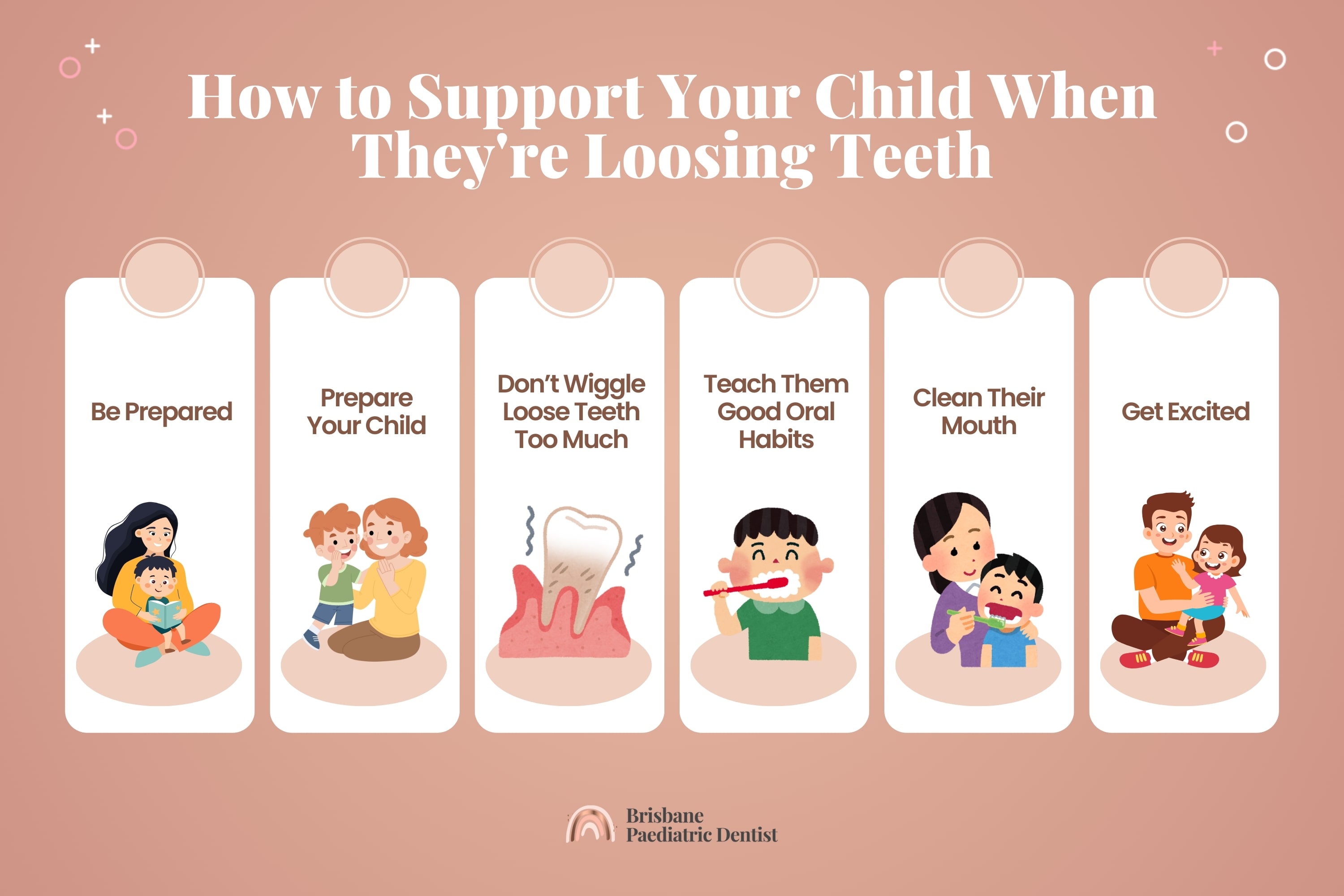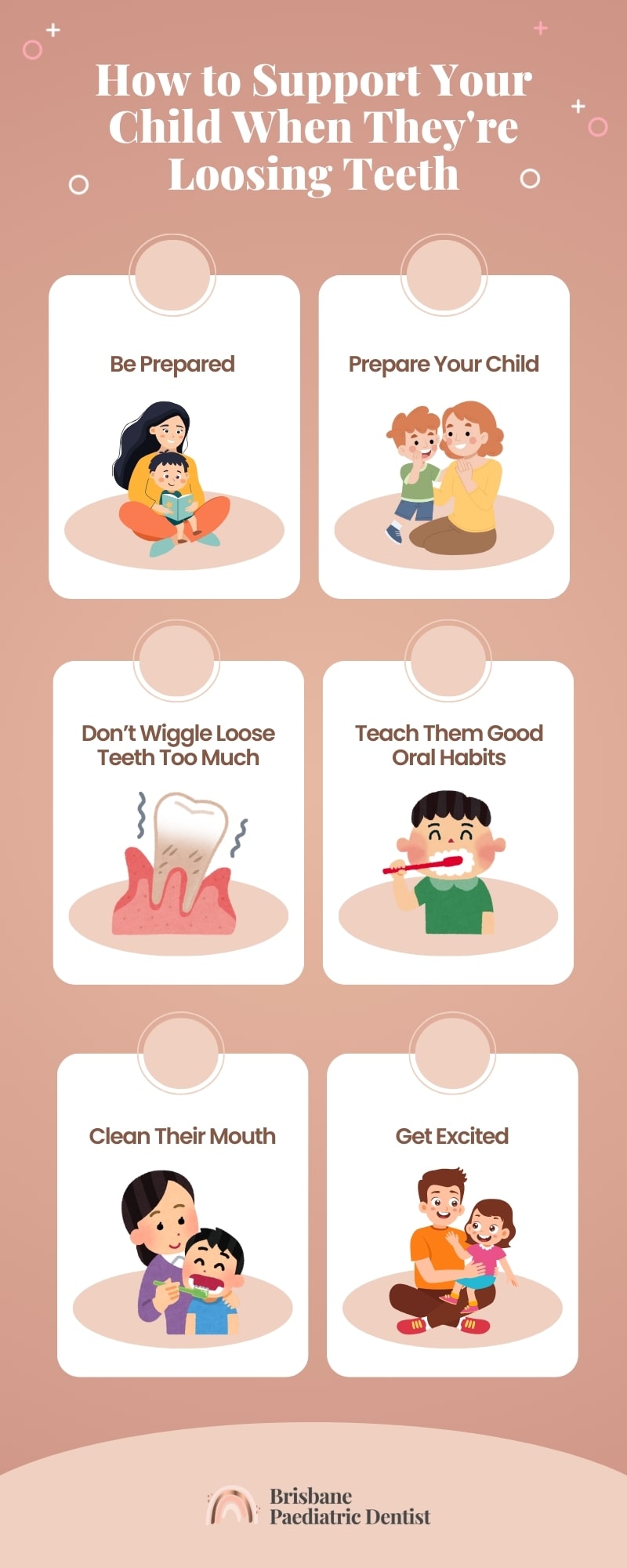Your child’s teeth start erupting from about 6 months old and typically start falling out at around 6 years old. Kids lose baby teeth as permanent teeth begin to develop under them, dissolving the roots of the milk teeth and pushing them out.
Understanding when baby teeth fall out will help you prepare for it and get your child into good oral health habits early on. This will ensure that those baby teeth fall out without any complications and that the new teeth grow healthy and strong from the start.
If you’re concerned about your child’s tooth development or dental health, book an appointment! We’re here to help both parents and children, from babies to teens!
When Do Baby Teeth Start to Fall Out?


Children start losing their baby teeth around 6 years old. However, some kids can lose their first milk teeth at the early age of 4 or 5! Children continue to lose teeth until the age of 11 or 12.
At this point, most children will have a full set of permanent teeth (adult teeth). But it can take a few more years for some kids’ adult teeth to come in – even up until age 21.
Baby Teeth Falling Out Timeline
Milk teeth fall out in the same order that they erupted. While every child is different, here’s when you can expect them to lose baby teeth.
Central Incisors (6 to 7 years old)
The central incisors are the front teeth, and these are usually the first baby teeth to fall out. Often, the two front teeth at the bottom fall out first, followed by the top front teeth, at around age 6 or 7. The permanent teeth will start to erupt very shortly afterwards.
As these are the first milk teeth to fall out, your child may experience fear or anxiety. They may get a fright when they feel their baby teeth are loose, or worry about it hurting when they lose the tooth.
Lateral Incisors (7 to 8 years old)
The next baby teeth to fall out are the lateral incisors, the ones next to the front teeth. It’s more common for the upper incisors to loosen and fall out before the lower ones, and this happens at around 7 or 8 years old.
At this stage, your child should understand the process of losing teeth, so there should be less anxiety. However, you should still encourage good oral hygiene to make sure these teeth fall out without a hitch.
Canines and Molars (9 to 12 years old)
The canines, first molars, and second molars may fall out in any order between the ages of 9 and 12. In most cases, the canines and first molars will go first, and the second molars are the last baby teeth to fall out.
- Canines, the “fang-like” teeth next to the lateral incisors
- First molars, the flat teeth next to the canines
- Second molars, those next to the first ones
It’s important to know that your child’s 6-year molars – the teeth right at the back of the jaw – won’t fall out. These are your child’s very first permanent teeth, and they erupt around age 6. So don’t worry if some molars fall out and some stay behind!
Factors Affecting the Tooth Loss Timeline
While most kids start losing their first set of teeth around 6 years old and progress through the same rough timeline, there is a range. Some children may lose their teeth a little earlier, or a little later.
This can be influenced by:
- Genetics
- Nutrition
- Oral health
- Overall health
If your child’s teeth don’t fall out when you expect, be patient. However, if your little one is experiencing pain or swelling, or their teeth are looking crowded or misaligned, it’s a good idea to make an appointment with a paediatric dentist.
Tips for Parents to Handle Baby Teeth Falling Out


It’s a natural process for your children to lose their first teeth, but you can make it easier by being prepared and helping your child prepare.
How to Help your Child Manage Loose Teeth
Some children may be frightened when they realise their teeth are loose. You can help ease their fear by telling them about the process before they have their first loose tooth. When it happens, be encouraging and remind them that it’s nothing to worry about.
We advise not wiggling the tooth too hard or too much. It can be tempting to play with it (especially for your child) but it can damage the root underneath and make it fall out sooner than it should. Let it loosen and fall out as naturally as possible.
Teach them Good Oral Health Habits
If your kids are taking good care of their teeth, it’ll be easier when they lose their baby teeth. A healthy oral environment will promote healthy tooth growth and reduce the risk of infection.
Teach them to brush their teeth twice a day and get them into the habit of flossing daily. If they learn it from a young age, it’s an excellent foundation for good oral health in adulthood.
What to Do When a Baby Tooth Falls Out
When your child’s baby teeth fall out, the first step is to get excited! If you’re into it, reward them with a gift from the tooth fairy. If not, it’s still a good time to congratulate them, because every tooth lost is another step towards growing up.
Next, clean the area of the lost tooth with a saline solution if possible, or clean water. Saltwater will sting a little but will help cleanse it properly and heal the gum faster. If it’s bleeding, apply a clean piece of gauze and get them to bite down on it.
When to Consult a Dentist
If your child is happy and seems otherwise healthy, there’s no need to visit a dentist. But you may want to take them for a check-up if:
- A baby tooth doesn’t fall out within the expected age range.
- New adult teeth come out before the baby teeth fall out.
- They are experiencing tooth-related pain, swelling, or excessive bleeding.
- Your child loses a baby tooth to trauma before they’re supposed to fall out.
- A permanent tooth falls out, due to natural causes or trauma.
When do Baby Teeth Fall Out FAQs
How many primary teeth fall out?
Children have 20 primary teeth (baby teeth) and all of them will fall out to make way for adult permanent teeth.
My child doesn’t have lateral incisors: Is it a problem?
Some children won’t have lateral incisors. This is a hereditary anomaly, so if a parent is missing their lateral incisors, the child may be too. In most cases, it’s not a problem, and it’s nothing to be worried about.
Is It normal for a child to lose teeth at age 5?
All children are different, so while most kids start losing teeth at age 6 or 7, some start losing them a little earlier. As long as your child has no pain, swelling, or uncontrollable bleeding along with their tooth loss, it should be fine.
Which children’s teeth don’t fall out?
Your child’s 6-year molars (the ones right at the back of the mouth) are their first permanent teeth and won’t fall out. These are visible teeth that erupt around age 6 and stay there forever. They differ from wisdom teeth, which may not even erupt at all.
Instilling good oral health habits in your child will also maintain the health of these teeth, as they’re the most susceptible to tooth decay.
If you found this article on informative, you may be interested to learn about another dental procedure used to treat infected primary teeth – the pulpectomy. The article “Dental Pulpectomy for Primary Teeth” explains how this alternative treatment can help save a child’s severely infected tooth. Click here to discover more about this important option for preserving primary teeth.
Back to top: When Do Baby Teeth Fall Out?





